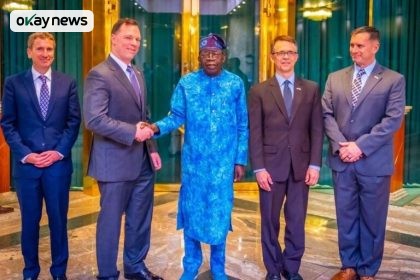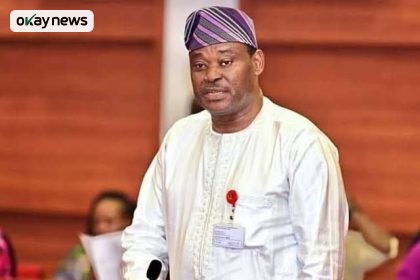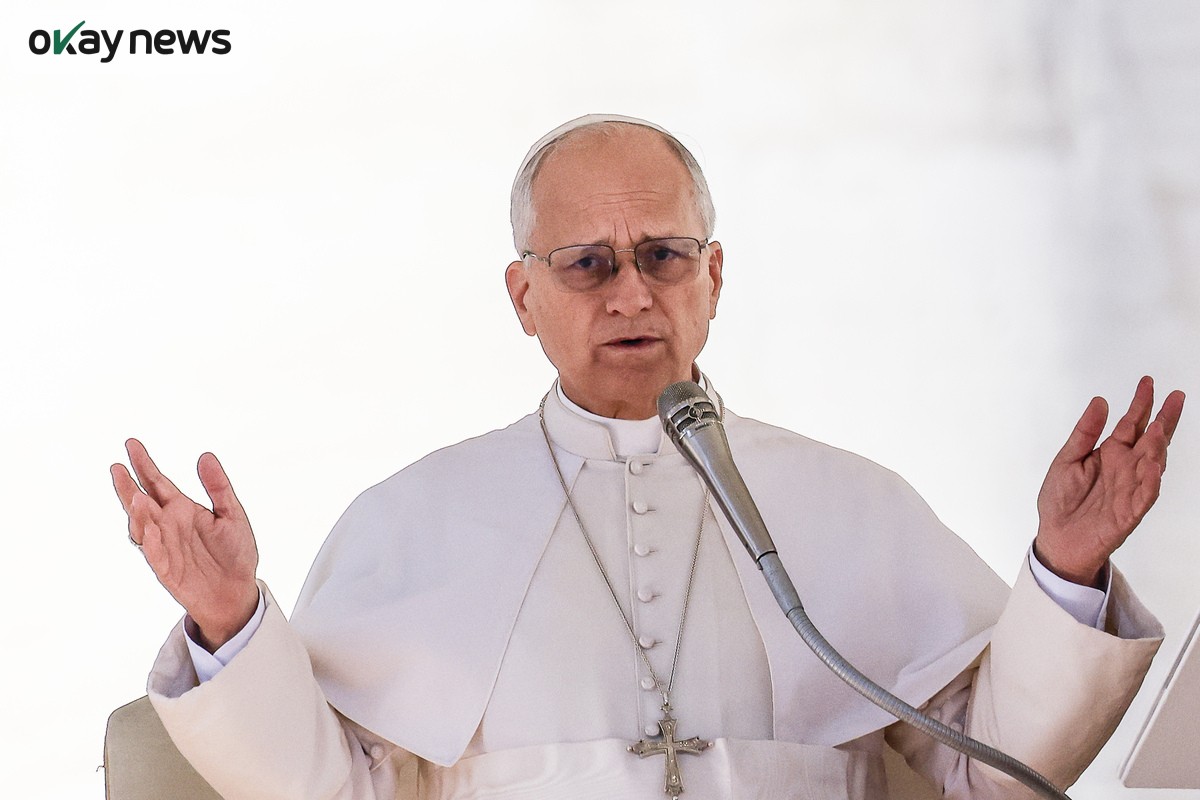President Bola Ahmed Tinubu has formally accepted the departure of Professor Mahmood Yakubu as Chairman of the Independent National Electoral Commission (INEC), marking the end of Yakubu’s second and final tenure at the nation’s top electoral body. The President is expected to unveil Yakubu’s successor after the Council of State meeting scheduled for Thursday in Abuja, where he will present a list of nominees for the position of the country’s chief electoral umpire.
Following this development, Yakubu officially handed over leadership duties to May Agbamuche-Mbu, a respected legal expert and the most senior National Commissioner at the commission, who will now serve as acting chairman until a substantive head is appointed. In recognition of his decade-long service, President Tinubu conferred upon Professor Yakubu the national honour of Commander of the Order of the Niger (CON), acknowledging his contribution to Nigeria’s democratic advancement.
Okay News reports that in a statement released by the Special Adviser to the President on Information and Strategy, Bayo Onanuga, Tinubu praised Yakubu for his steadfast service and commitment to conducting transparent and credible elections throughout his tenure. “President Tinubu thanked Professor Yakubu for his services to the nation and his efforts to sustain Nigeria’s democracy, particularly through the organisation of free and fair elections throughout his two-term tenure,” the statement read.
The President further directed that Professor Yakubu should hand over to the most senior commissioner, May Agbamuche-Mbu, who will oversee the commission’s affairs pending the appointment of a new chairman. In a farewell letter dated October 3, 2025, Yakubu expressed deep gratitude to President Tinubu for granting him the opportunity to lead the electoral body over two terms, reaffirming his belief in the nation’s democratic process.
Yakubu, who was first appointed in November 2015 and reappointed in 2020 after Senate confirmation, presided over the 2019 and 2023 general elections, as well as numerous off-cycle polls. During his leadership, the commission implemented several groundbreaking innovations, including the introduction of the Bimodal Voter Accreditation System (BVAS) for authenticating voters and the INEC Results Viewing (IReV) portal for real-time result transmission.
BVAS was first deployed during the 2021 Anambra State governorship election and was later adopted in the Federal Capital Territory Area Council elections and other off-cycle governorship contests in Ekiti and Osun States before being fully implemented in the 2023 general elections. Yakubu also championed the expansion of polling units nationwide, improved voter registration through continuous enrollment, and strengthened collaboration with civil society organisations, political parties, and the media to foster public trust in the electoral process.
While his tenure saw significant technological and administrative advancements, it was not without challenges. The 2023 general elections experienced technical hitches and logistical delays that drew criticism from political actors and citizens. Despite these issues, Yakubu maintained INEC’s independence and insisted on adherence to constitutional guidelines.
Legal experts have since weighed in on the appointment of a new INEC chairman. Senior Advocate of Nigeria (SAN), Ifedayo Adedipe, cautioned against politicising the process, describing the debate over who should make the appointment as misplaced. “Was it not Jonathan that appointed Professor Jega? Didn’t Jonathan lose the election? We should focus on other things rather than this issue of who appoints who or what,” he said.
Adedipe argued that the credibility of elections depends more on the integrity of citizens and political actors than on who occupies the position of chairman. Another Senior Advocate of Nigeria, Adedayo Adedeji, emphasised that the Constitution clearly grants the President the power to appoint the INEC chairman, subject to Senate confirmation, stressing that the screening process must remain transparent and free of bias. “Section 153 and 154 of the Constitution is instructive on this,” he noted, calling for broader consultations in future appointments.
Similarly, Wale Balogun, SAN, called for a more rigorous selection system to ensure the appointment of a credible individual, while acknowledging that the existing checks and balances are sufficient to maintain transparency.
In his farewell remarks at the INEC headquarters in Abuja, Yakubu cited Section 306 of the 1999 Constitution (as amended) as the basis for his resignation, saying he had decided to step aside to give room for continuity and allow the appointing authorities time to choose his successor. He thanked INEC staff, Resident Electoral Commissioners, members of the National Youth Service Corps (NYSC), civil society groups, and Nigerians for their support, adding that he would cherish the experience and lessons learned during his decade-long tenure.
“Above all, I thank Nigerians for their comments as well as criticisms which encouraged rather than discouraged us to persevere,” he said. Yakubu also presented two books chronicling INEC’s achievements under his leadership: Election Management in Nigeria 2015–2025 and Innovations in Electoral Technology 2015–2025.
As acting chairman, Agbamuche-Mbu will steer the commission through upcoming electoral exercises, including the Anambra State governorship election in November 2025, the Federal Capital Territory Area Council election in February 2026, and the governorship polls in Ekiti and Osun States in mid-2026. The commission has also commenced early preparations for the 2027 general elections while awaiting the passage of a new Electoral Act.
Agbamuche-Mbu, a legal practitioner with over three decades of experience, hails from Delta State and holds law degrees from the University of Ife (now Obafemi Awolowo University) and Queen Mary University of London. She was called to the Nigerian Bar in 1985 and later qualified as a Solicitor of the Supreme Court of England and Wales.
As she assumes leadership, observers expect her to continue INEC’s reform agenda while addressing gaps observed in past elections. President Tinubu’s upcoming appointment of a new chairman is anticipated to shape the future of Nigeria’s electoral landscape as the nation prepares for another critical democratic cycle.







